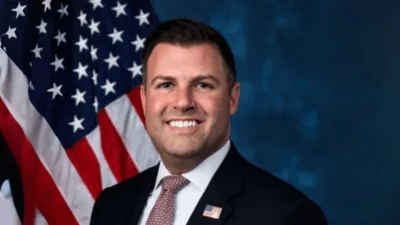WASHINGTON - 364 days ago, the American public, government regulators and Gulf of Mexico families had been lulled into a false sense of security over the safety of offshore drilling and the ability of the oil industry to respond in the event of a severe spill. After years of systemic complacency and mismanagement by the U.S. government and the oil companies, weeks of poor decision-making on the part of BP and its partners in the ill-fated Macondo oil well, and a few moments of deadly horror on the Deepwater Horizon, everything known about deepwater drilling changed utterly.
One day before the first anniversary of the BP Deepwater Horizon oil spill, Rep. Edward J. Markey (D-Mass.), the leading Congressional voice pushing for oversight and safety regarding the response to the BP spill and the safety of the offshore oil drilling industry, said that while some improvements in the safety of deepwater drilling had occurred since the spill, that conditions still existed that could result in another major oil spill.
Rep. Markey, the top Democrat on the Natural Resources Committee, also said that continued health concerns in the Gulf and our moral obligation to fellow citizens require Americans to continue to support the people and businesses of the region, and continue scientific monitoring and environmental recovery efforts.
"One year after the BP spill began, the American people and the citizens of the Gulf shouldn't believe that another major spill couldn't occur, or that our response wouldn't be as sub-par as it was during last summer's spill. Many holes still exist in our offshore oil drilling safety regime, and another spill could happen again," said Rep. Markey. "The repetition of this historical disaster would not result from a lack of study, but from an oil industry that still needs massive reform, and from a persistent hubris on the part of fossil fuel boosters."
Safety Concerns Persist
Rep. Markey noted that while the Department of Interior had begun necessary reform of its drilling regulatory agency, and issued new standards for well design, blowout preventer inspections, and some standards for response plans, that several aspects of offshore drilling still needed reform:
* Blow Out Preventers. The recent report on the BP BOP by Det Norske Veritas raises questions about design flaws inherent to the machines. Rep. Markey has called for a safety review of all BOPs used in U.S. waters.
* Response plans and technologies. While oil companies are currently required to certify that they can respond to a spill and provide a worst-case scenario analysis to drill new areas, old response plans are still being accepted for up to two years until they must be fully updated. Additionally, while the ad hoc capping stack technology deployed by BP last year eventually worked, the oil industry is now offering that as the main safety device, which could signal an unwillingness to further the design and manufacture of more robust response technologies and plans.
* Expanded drilling, reduced safety. Oil companies and their allies in Congress are pushing to open our East and West Coasts and Alaska to expanded drilling, while reducing safety review. This follows a year where Republicans blocked any spill safety legislation, including a bill offered by Rep. Markey that would have implemented the recommendations of the independent spill commission.
"We know blowout preventers don't always work, even when they're used correctly. We know the oil companies still don't have full response capabilities, even if they've given their top hat a new coat of paint. And we know that the recommendations of the spill commission haven't been put in place," said Rep. Markey. "Yet Republicans in Congress and the oil companies are still pushing for more drilling with less safety. This i









